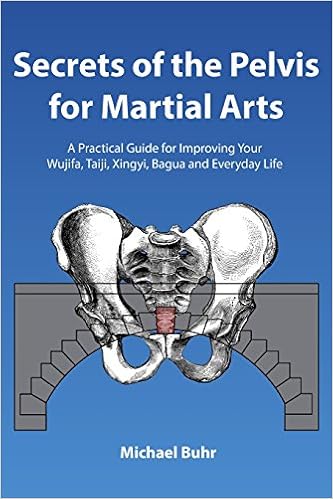* Question: It's hard for me to believe that no one else is teaching this level of detail. What's the difference between the average "internal martial arts" teaching and Wujifa teaching?
Answer: Many teachers teach a method and don't teach the feeling. (Maybe they don't know the feeling?) So what is missing in most teachings is how to teach the feeling. Wujifa focuses on teaching the feeling and uses a wide variety of methods to do this. Some of these methods are created spontaneously in the moment to help a student get the feeling. Others are worked out in great detail before being demonstrated and shared with students and then refined over time. Methods are useful to get you to notice the feeling. Advanced practitioners will leave the methods behind and focus on practicing refining the feeling.
* People get bored with a simple, repetitive practice but if they don't get the details that are learned and mastered in the simple, repetitive practices and if they try to move on to more advanced practices too quickly, then either they don't get the results they desire or they hurt themselves.
* Question: How am I doing with the theraband stretching exercise? (I demonstrated.)
Answer: Still too much muscle.
* Question: Do you think I'd make better progress if I were more a "natural" at sports?
Answer: Someone who is a "natural" cannot be said to have good gong-fu. When the idiot "gets it", he's ten times the master of "the natural". "Naturals" generally don't have the patience to work at developing a deep level of understanding.Once the idiot "gets it", then he knows what was involved to "get it" and in learning and struggling with the process, he knows how to improve beyond "the natural's" natural ability. "Naturals" tend to get stuck at the level of their natural ability.
* Question: How about keeping up on my weight lifting exercises while practicing Wujifa?
Answer: Weight lifting builds muscle through repetitive contractions. Working and focusing on contracting impedes feeling connectedness through relaxing and expanding. If you are going to do both, then be sure to keep your Wujifa practice separate from weight lifting.
* A Quality Control Approach to Training Zhan Zhuang: (What do you want? What are you doing? What results are you getting?) - (Intention- Process - Results)
 People can get stuck on what they are doing.
People can get stuck on what they are doing.People may be clear on the process but other intentions can feed into the process.
Results - Verify if the results feed the originally stated intention. If the results are interesting but don't support the stated intention, then you need to compare the results to the intention to see if there are hidden intentions.
* Question: One more time, what is the meaning of, "When one part moves then all parts move."?
Answer: Each part moves a little in relation to the movement of another part. This does not mean that the whole is a frozen block and one part of the block moves when another part of the block moves. It also does not mean that the parts move independently like the points on a whip or limp noodle. Rather, think of the connected elasticity of a tensegrity model. "When one part moves then all parts move". When pressure it applied at one point, then all the other points adjust accordingly maintaining the structure.
(Each time I ask this question, I get a clearer insight into what it means and how this meaning "plays out" in my body.
While some may say that moving like a whip (energy generated from the feet, directed by the waist, expressed in the fingers) is connectedness, I now think the whip analogy of connectedness is a misleading concept because a whip is essentially a limp noodle and inherently lacks the structure to stand up and conduct groundpath.)
* We were talking about data and I was shown how I use data in three different ways:
- Historical data. Data that corroborates my story; supporting evidence for my excuses.
- Mystical data. Data that explains what "God wants me to do".
- Functional data. Data that I use to function in daily life. For example, if I want ice for drinks, I know that water turns to ice at 0 degrees centigrade so I need to put water in the freezer.
- What kind of data are you collecting?
- Where do you put your data?
- What are you doing with your data?
(Remember the TV character "Spock" in the original "Star Trek" series? His rationality ruled his heart. Well, my rather Spockian approach to life was a major roadblock to feeling. An armor against feeling. A way to distance myself from feeling. Hence, why my notes repeatedly come back to this topic. Data is also a strength not to be discarded but rather employed to advance my own Wujifa practice. I still need to work on bringing data and feeling, head and heart, into Balance.)
Introductory article explaining this "Journal Notes" series: Zhan Zhuang Training Journal
Previous article in this series: Zhan Zhuang Craftsman: Journal Notes #91
Next article in this series: - Faux Feeling, True Feeling: Journal Notes #93


No comments:
Post a Comment